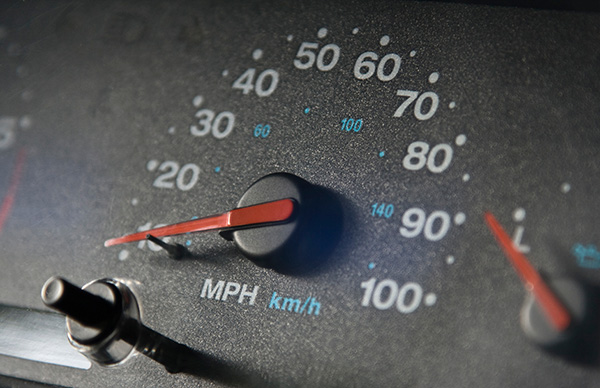
One of the most important pieces of information you rely on while driving is your speed. Not only does it help keep you within legal speed limits, but it also ensures your safety and the safety of those around you. So, what do you do if your speedometer suddenly stops working? A malfunctioning speedometer can be both frustrating and dangerous. Understanding the reasons behind the failure and knowing how to address it can save you from accidents and potential fines.
Why Is My Speedometer Not Working
If your speedometer stops working, there could be several reasons behind it. Knowing the underlying cause is the first step to fixing the problem. Common causes include:
Faulty Speed Sensor
The speed sensor is one of the primary components responsible for sending data to your car’s speedometer. When this sensor malfunctions, the speedometer won't be able to display your speed accurately or at all. This sensor failure may also cause other issues in your car, such as inaccurate odometer readings or transmission shifting problems.
Broken Speedometer Cable
While most modern cars use electronic sensors to determine speed, older vehicles still rely on a speedometer cable. If this cable breaks or becomes detached, your speedometer won't register any movement. This issue tends to occur more frequently in vehicles with mechanical speedometers.
Blown Fuse
Sometimes, the solution is as simple as a blown fuse. A fuse protects many of the electronic systems in your car, including the speedometer. If the fuse responsible for this circuit blows, your speedometer can stop working entirely.
Wiring Issues
A disruption in the wiring between the speed sensor and the speedometer can cause a malfunction. This problem can be tricky to diagnose since it may be a result of damaged wires, poor connections, or electrical shorts. Any of these issues can result in the speedometer failing to show the correct speed—or working sporadically.
Malfunctioning Instrument Cluster
Your speedometer is part of the instrument cluster, which displays various readings from your vehicle, such as fuel level, engine temperature, and more. A malfunction in the instrument cluster can affect the speedometer's performance. If the cluster is defective, the entire display may need to be repaired or replaced.
What Should I Do If My Speedometer Stops Working?
If you notice that your speedometer is no longer displaying your speed correctly, it’s crucial to take immediate action. Here are the steps you can follow:
Check the Speedometer’s Performance
Before jumping to conclusions, observe whether the speedometer is completely dead or fluctuating. If it’s just misreading occasionally, it could be an issue with the sensor or wiring. Still, if it's completely inactive, it might be something more significant, like a blown fuse or malfunctioning instrument cluster.
Inspect the Fuses
The first thing to check when your speedometer stops working is the fuse box. Find the fuse that corresponds to the speedometer or the instrument cluster and inspect it for any signs of burning or wear. If the fuse is blown, replacing it could solve the problem.
Test the Speed Sensor
If the fuses seem fine, the next step is to have your speed sensor inspected. A faulty speed sensor will often trigger a check engine light, so if you see this indicator, it might be the culprit. Replacing the speed sensor can typically restore your speedometer’s function.
Consult a Professional
In many cases, speedometer issues require the expertise of a professional. Problems like damaged wiring or a malfunctioning instrument cluster are more complex and can’t always be fixed on your own. A technician will use diagnostic tools to identify the specific cause and provide the necessary repair.
Use a GPS App in the Meantime
While you’re addressing the problem, it’s unsafe to drive without knowing your speed. In the short term, you can download a GPS app that tracks your speed based on location data. This is a temporary solution, but it’s far better than driving blind.
Why Is It Important to Fix a Malfunctioning Speedometer?
Driving with a non-working speedometer can put you at risk of speeding without even realizing it. Not only could this result in costly tickets, but it also increases the chances of accidents. Knowing your speed is essential for maintaining control of your vehicle and ensuring the safety of others on the road.
If your speedometer is connected to other systems—such as the odometer or transmission—allowing it to stay broken could lead to further complications. For instance, a faulty speed sensor can cause your vehicle’s transmission to shift improperly, which can lead to even more expensive repairs.
Avoid DIY Fixes for Complicated Issues
While some fixes, such as replacing a blown fuse, can be done easily at home, most speedometer problems are complex. Attempting to repair delicate components like the speed sensor or instrument cluster on your own can result in further damage, leading to even higher repair costs. Always consult a trusted technician when you’re unsure of the problem or don’t have the tools and experience to handle it.
Jeff's Automotive can fix your speedometer quickly, whether it’s a faulty speed sensor or a more complex issue. Get in touch today, and let us take care of the problem so you can get back on the road safely!